Liberation Theology
When Democratic Socialist Zohran Mamdani defeated Andrew Cuomo in New York City’s mayoral primary, the political establishment didn’t quite know what to do.
Headlines described Mamdani’s win as “stunning,” “electrifying,” an “upset,” and even a “miracle.” Right-wing critics responded with predictable vitriol, labeling Mamdani a “communist,” “terrorist,” and a “little Muhammad.” These attacks were aimed both at his politics and his identity as an Indian American, a Muslim, and a socialist.
But what was most remarkable about Mamdani’s successful campaign wasn’t necessarily Mamdani himself. Rather, it was the working-class support behind his campaign that captured people’s attention.
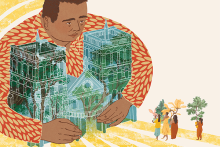
MY ANCESTORS ARE the Indigenous people of the Samoan Islands in the Pacific Ocean. The island chain is now separated by its colonial legacies: At one point, Germany and New Zealand controlled what is now the Independent State of Samoa, and the United States remains in territorial control of American Samoa.
The consequences of that history forced me to turn inward and clearly hear the lamentations of my ancestors. I think many Indigenous people with similar colonial wounds would agree we just want to heal from our pain. And the only appropriate remedy is justice.

I’d wager that whether you are new to Sojourners or a longtime subscriber, you probably have a deep admiration for the late Salvadoran archbishop and liberation theologian, St. Óscar Romero. And if you don’t, then you’re about to.
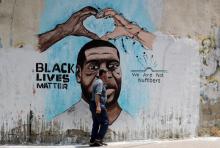
The story of Zion resonates with the history of African Americans. Blacks and Jews share common legacies of segregation, genocide, and racial domination. No wonder many enslaved Africans understood biblical Israel as a symbol of freedom from bondage. As historian Robin D.G. Kelley explains, the story of Exodus “provided Black people not only with a narrative of slavery, emancipation, and renewal, but with a language to critique America’s racist state.” Exodus was our political compass through the wilderness of slavery. Except we imagined ourselves as the Israelites, America as Egypt, and “Massa” as the Pharaoh whom freedom fighters like Nat Turner and Harriet “Moses” Tubman demanded, “Let my people go!”
But my view of Israel changed when I learned about Palestine in the streets of Ferguson, Mo.

On my first trip to Cuba in 2022, I met Jorge González Nuñez, president of the Movimiento Estudiantil Cristiano de Cuba (MEC). I asked how he would describe the situation the Cuban people were living in, impacted by the U.S.’ decades-old trade embargo and other policies introduced by the administrations of former President Donald Trump and President Joe Biden, from a theological perspective. His answer stuck with me.
“The Cuban people are going through a crucifixion,” he said without hesitation. “It is hard to have hope.”
He paused and then added, “But there is resurrection.”

The situation is dire but U.S. climate policy is not changing. While lawmakers in the U.S. are stuck at tax credits for electric vehicles, a sixth mass extinction event is already here. Electric vehicles and small-scale conservation efforts can’t fix this.
There are two problems at hand: First, there is a material problem. Humans, especially humans in the richest nations, are producing and consuming too much, which not only contributes to pollution, but also increases emissions and causes a never-ending sprawl of unsustainable land use. This ultimately displaces animals from their habitats. The second problem is a spiritual problem: Humans have become so alienated from other nonhuman species that they no longer recognize themselves as a part of creation. Instead, humans view themselves as above it.

I’ve never felt the certainty of divine presence in my life. I’ve chased it, I’ve wanted it, but I have never felt it. My religious experience is more akin to poet and essayist Christian Wiman’s experience. Wiman describes God as “... my bright abyss / Into which all my longing will not go.” I persistently feel my attempts to address God are met with emptiness, and yet I find it impossible to abandon the language of religion. What do I do about this “bright abyss” that I seek but never find? What do I make of this divine glow on the horizon of my experience that all but fades away when I seek it?
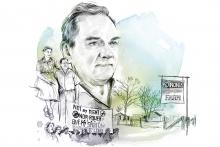
CLARENCE L. JORDAN died on Oct. 29, 1969, at 57 years old. The radical Southerner who dedicated his life to farming, sharing the gospel, and imploring his neighbors to actually follow Jesus is not widely remembered. Jordan died as simply as he lived — buried in a wooden box used to ship coffins, in an unmarked grave, and wearing his overalls. In early 2020, a little more than 50 years after Jordan (pronounced “Jurden”) died, I came across his work and was enamored. I began reading anything from or about him I could find. Jordan’s Georgia roots and love for the South mirrored my own. His charm and cutting humor were irresistible. Most appealing was Jordan’s stubborn commitment to radically following Christ, which led him to reject and rebuke the practices of racism, capitalism, and militarism in the U.S.
On the podcast Pass the Mic, writer Danté Stewart put a name to what I found in Jordan. “The reason why white [siblings] are struggling in this moment is because most of their models have been violent white supremacists,” Stewart said. “White [siblings], they don’t have models of liberation and love, so therefore they’re struggling in this moment.” Clarence Jordan was a “model of love and liberation” that we can learn from now. The dehumanizing forces of racial capitalism and militarism are no weaker in the U.S. today than in his lifetime, and many white Christians are avid proponents of both. Jordan’s resistance and radical theology did not die with him; instead, they can evolve and grow with the times. We should engage Jordan without idolizing him and advance his core commitments with a critical eye, honestly appropriating them for our modern struggles.
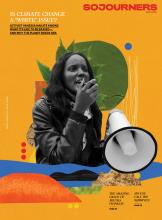
Activist Vanessa Nakate on Jesus, erasure, and the climate crisis in the Horn of Africa.

If God tends to the lilies of the field, how much more will God protect the poor and oppressed (Matthew 6:25-34)? This is the correct definition of divine providence: God cares for, loves, and empathizes with the meek who will one day inherit the earth. This is the providence that theologian James H. Cone imagined in his seminal work God of the Oppressed: “God has not ever, no not ever, left the oppressed alone in struggle. He was with them in Pharaoh’s Egypt, is with them in America, Africa, and Latin America, and will come in the end of time to consummate fully their human freedom.”
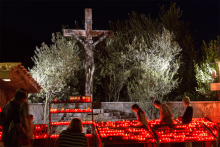
Many of the white evangelical churches I have visited and grew up in framed Good Friday as a celebration. I have attended services that centered around dramatic skits or clips of Mel Gibson’s The Passion of the Christ in order to evoke an emotional response. Another service treated Good Friday like a visitation where congregants were encouraged to reflect on their “friend Jesus” and share words of gratitude.
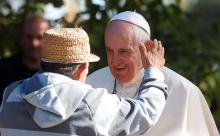
Speaking with an Argentine accent, amplifying the voice of the poor, indicting the rich, and betting it all on grassroots movements, we might even ask, do we finally have a liberation theologian in St. Peter’s chair?
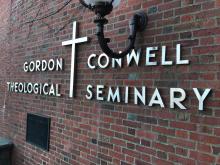
This past spring, Gordon-Conwell Theological Seminary laid off Rev. Emmett G. Price III, a popular professor and former dean of chapel who founded the Institute for the Study of the Black Christian Experience there in 2016. The decision not to renew his contract as part of budget cuts prompted letters of protest from alumni, community leaders, and the Hamilton, Mass., campus’ student association. But students had been raising concerns about racism on campus with senior administrators for months, Sojourners has learned.

“I think there are aspects of people attempting to discuss politics in Christian terms, or people interpreting their politics through a Christian lens, that’s always going to lead to terrible arguments,” she said. God cares about politics, Coaston said, but not in such a literal way that God has an opinion on something like Medicaid expansion. To those using God-talk to drum up votes, Coaston asks: “Why would you want God to be that small?”
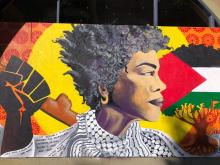
The first time that I visited Palestine was during my senior year at a Christian liberal arts college. It was one of those “Holy Land tours.” You know the type: visit the sacred sites, avoid political chatter, and return with photos of you or someone you know getting baptized in the Jordan River. Hashtag blessed.
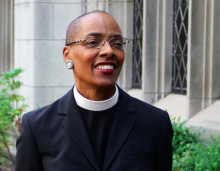
One of the reasons I liked going to church was because I loved hearing stories about Jesus. One of the most compelling, yet saddest, stories I heard was about his manger birth. As a little girl, I simply could not understand how people could allow a baby to be born in a cold barn, in a manger. I cried every time we sang, “Away in a manger, no crib for a bed. The little Lord Jesus Lay down His sweet head.” Every time I heard that hymn, I was reminded of the little girl and boy I had seen on that rainy evening. Somehow, I instinctively knew that there was a connection between Jesus’ manger birth and their inner-city life.

“WHAT'S YOUR CASTE, Daniel?”
Glancing around my sixth-grade history classroom, I knew my answer to the teacher’s question wouldn’t mean anything to my American peers. It hardly meant anything to me, a South Asian kid. As years passed, I heard murmurs about controversy surrounding the teaching of the Hindu caste system in our classrooms. And in 2017, I watched California’s board of education vote to approve history textbooks that erased key aspects of a 3,000-year-old system of apartheid that presently affects almost 2 billion people around the world.
Caste is personal, systemic, violent, and subtle—all at once. Dalits, caste-oppressed people formerly known as “untouchables,” know this too well. As Dalit theologian and Christian minister Dr. Sunder John Boopalan told me, caste is the “oldest surviving form of anti-human oppression.”
How does caste work? Why does it matter? What do we do about it?
The best teachers on this subject are those who have persisted, resisted, and found God amid the brunt of caste oppression. Dalit liberation theology exists as a beacon of hope against crushing evil, calling all of humanity to see God, freedom, and ourselves in a renewed way.
Caste as an Origin Story
IN A 2016 INTERVIEW, civil rights activist Ruby Sales said that every theology should have “hindsight, insight, and foresight.” Using hindsight, we often find that oppression is rooted in the origin stories we tell.
The origin story of caste goes back to the ancient roots of Hinduism—more accurately called Brahminism—honed over centuries by upper-casts groups seeking to maintain social and political power and further entrenched by British colonial forces. The creation story in the Purusha Sukta tells of a primeval god sacrificing himself to create the world. Varnas, or castes, emerge from different parts of his body. Brahmins (priests and scholars) originate from his head, Kshatriyas (warriors and administrators) from his arms, Vaishyas (farmers and merchants) from his thighs, and Shudras (laborers and servants) from his feet. This hierarchical system ranks people according to purity and assigns their occupations.

It seems that no matter where we look, we are confronted with alliances between the religious right and the political right. The Christian right in the U.S. sees Donald Trump and his administration as some sort of a messiah for white Protestant Christianity. In Muslim-majority Southeast Asian states like Malaysia and Indonesia, various levels of government are finding it hard to not acquiesce to the demands made by conservative Muslim groups on matters related to condemning the LGBT community. Perhaps such incursions by the religious right into politics have become more prominent recently because they are abetted by the ascendancy of the authoritarian and anti-intellectual personality.
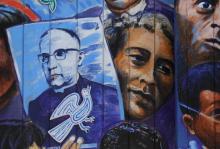
"THE CRY OF THE POOR rises to the heavens!” With one phrase, proclaimed at a conference of Catholic bishops in Medellín, Colombia, in 1968, history changed in Latin America.
Fifty years ago, the “princes of the church”—with the support of Pope Paul VI, who opened the gathering, and embodying the renewal of Vatican II—agreed to dethrone themselves. A “preferential option for the poor,” they said, would lead the renewed Catholic Church.
Bishops and priests, religious sisters and brothers, began working to change the historic structures of inequality and abuse that had existed in Latin America since the 15th-century invasion of the rapacious Spaniards. Faith was no longer held captive by the educated and powerful elites; now laypeople were empowered to make their faith their very own bread and Word. Christian base communities emerged. Theologians got busy listening “from below.”
A name was attached to the Medellín movement with the arrival of Father Gustavo Gutierrez’ groundbreaking book A Theology of Liberation. Liberation theology, rooted in the economically and politically oppressed, became the first modern theological movement to emerge in the Catholic Church outside of Europe.

James H. Cone, the scholar known as the “founder of black liberation theology,” died April 28, Union Theological Seminary announced. He was 79.